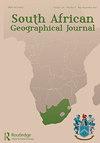‘They don’t read metres, they only bring bills’: Issues surrounding the installation of prepaid water metres in Karoi town, Zimbabwe
IF 1.4
4区 社会学
Q3 GEOGRAPHY
引用次数: 8
Abstract
ABSTRACT City and town administrators in Zimbabwe continue to push for the installation of prepaid water meters (PWMs). This is despite the residents' objections to the proposal. The merits and demerits of PWMs continue to be debated, and more empirical information will help chart a new course especially in smaller cities in poor countries. The paper adopts a qualitative research design and case study approach in eliciting information from respondents. Water governance institutions and 35 residents in Karoi town were purposively sampled to understand how they viewed the impact of PWMs installation in the water supply chain. Data collection tools included questionnaires, documents, observations and focus group discussions (FGDs). Findings revealed that respondents perceived water is an indispensable commodity, a right and one that should be enjoyed by every citizen regardless of their social or economic status. The installation of PWMs also runs contrary to the Zimbabwean Constitution as it deprives low-income citizens of water if they could not afford to pay. Instead, a more appropriate delivery mechanism is the traditional post-paid system, which allows consumers to access water based on affordability.“他们不看水表,只拿来账单”:津巴布韦卡罗伊镇安装预付费水表的问题
津巴布韦的城镇管理者继续推动安装预付费水表(PWMs)。尽管居民们反对这一提议。工资单的优点和缺点仍在辩论中,更多的经验资料将有助于制定新的路线,特别是在贫穷国家的小城市。本文采用定性研究设计和案例研究的方法从受访者中获取信息。我们对Karoi镇的水治理机构和35名居民进行了有目的的抽样调查,以了解他们如何看待在供水供应链中安装pwm的影响。数据收集工具包括问卷调查、文件、观察和焦点小组讨论(fgd)。调查结果显示,受访者认为水是一种不可或缺的商品,是一项权利,是每个公民都应该享有的权利,无论其社会或经济地位如何。安装pwm也违反了津巴布韦宪法,因为它剥夺了低收入公民的用水,如果他们支付不起。相反,一个更合适的交付机制是传统的后付费系统,它允许消费者根据负担能力获得水。
本文章由计算机程序翻译,如有差异,请以英文原文为准。
求助全文
约1分钟内获得全文
求助全文
来源期刊

South African Geographical Journal
GEOGRAPHY-
CiteScore
3.40
自引率
7.10%
发文量
25
期刊介绍:
The South African Geographical Journal was founded in 1917 and is the flagship journal of the Society of South African Geographers. The journal aims at using southern Africa as a region from, and through, which to communicate geographic knowledge and to engage with issues and themes relevant to the discipline. The journal is a forum for papers of a high academic quality and welcomes papers dealing with philosophical and methodological issues and topics of an international scope that are significant for the region and the African continent, including: Climate change Environmental studies Development Governance and policy Physical and urban Geography Human Geography Sustainability Tourism GIS and remote sensing
 求助内容:
求助内容: 应助结果提醒方式:
应助结果提醒方式:


